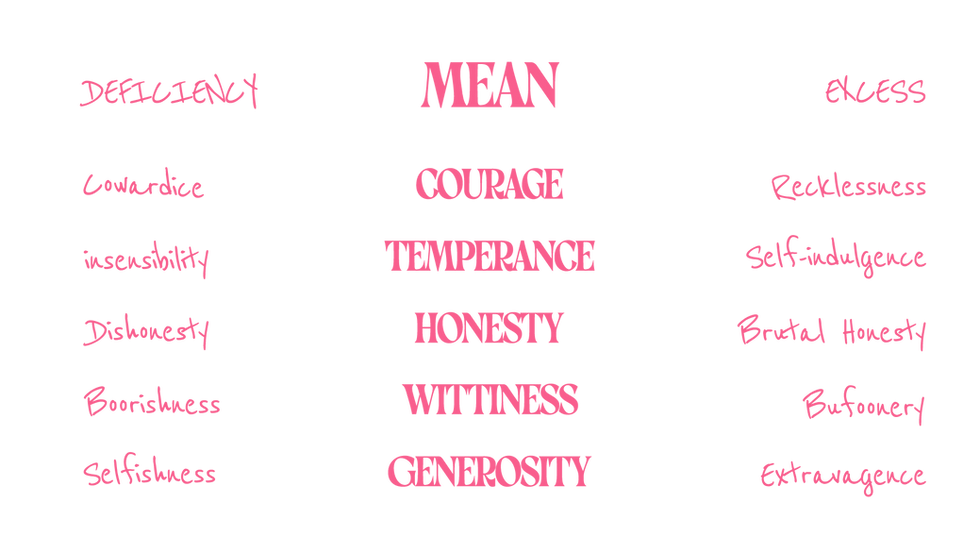Nicomachean Ethics - What it means to be Virtuous and achieve Eudaimonia
- DRNKN WZRD

- Jul 15, 2025
- 2 min read
Updated: Jul 28, 2025
Think about a person who always knows what to say or how to act in any situation. They respond at the right times and with the right amounts. According to Aristotle, this person embodies what it means to be a virtuous individual.
Now, this may sound like an impossible ideal. However, Aristotle suggests that it is something we should strive for in our lives. But why? The answer lies in the concept of Eudaimonia.
Eudaimonia
Eudaimonia is a Greek word that has no direct English equivalent. It can be closely approximated to a life well-lived or flourishing.
Imagine a flower. If you water it and provide enough sunlight, it will grow and bloom into a beautiful, virtuous flower. In Aristotle's view, virtue means living up to one's function. A chair that you cannot sit on is not a good chair. Similarly, a human being who neglects their role in seeking knowledge and personal growth is not a virtuous person.
Whether you believe, like Aristotle, that you are born with an essence, or like Jean-Paul Sartre, that you define your own essence, the responsibility to strive for eudaimonia falls upon you. Achieving this state requires effort and commitment.
The Importance of Habit
It is not enough to perform virtuous actions once. Instead, it is about making these actions habitual. Virtue is a skill that must be honed through experience and practice. Just as someone who drew once five years ago would not be considered an artist, virtue also requires continuous practice.
Aristotle famously stated, “We are what we repeatedly do; therefore, excellence is not an act but a habit.”
Phronesis, or practical wisdom, is the ability to know what to do in any situation. It involves considering your knowledge, experiences, character, and capabilities. This wisdom allows you to navigate situations and act virtuously by understanding the golden mean.
The Golden Mean
Finding a perfect guide for virtuous actions is challenging because it does not exist. Virtuous actions are unique to each individual, much like fingerprints. The golden mean of virtue lies between the vices of excess and deficiency. For each person, this balance will manifest differently.

Take courage, for example. For a firefighter, jumping into a burning building to save lives is courageous. However, for an untrained person, that same action would be reckless. To act virtuously means understanding your own capacity and making the right judgments to resolve the situation effectively.
Another example is generosity. In Islam, giving Zakat is mandatory. If a wealthy man donates a certain amount, it may be a challenge for someone with less financial capability to match it. Therefore, Zakat is measured as a percentage of income, ensuring that each person gives within their means.
Understanding Virtue
In the end, it is crucial to recognize that a bad day does not define you as a bad person. Likewise, one good day does not make you a good person. It is about understanding your values, goals, and capabilities. Strive to act within your means to live a life of virtue.
For more insights, check out our other posts and watch our YouTube video.





Comments